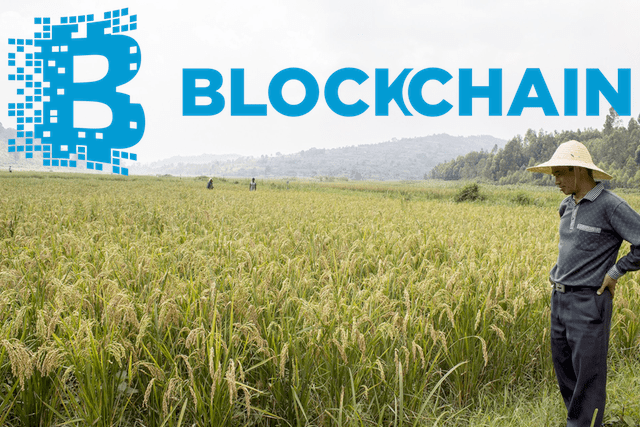Agricultural companies want to use the blockchain technology to improve efficiency

The capabilities of the blockchain technology have awed even those who are skeptical of cryptocurrencies. This new technology has been compared to the internet many times with its transformative power. Although the boom in cryptocurrencies has overshadowed anything else that was the product of the technology, blockchain still managed to find real-life application in many parts of the world. Central banks of Canada and Singapore are working on projects that aim to utilize blockchain for the inter-bank transactions. There were thousands of ICOs that also offered projects for the application of the new technology. Nevertheless, as these offerings were usually designed as a way to raise money, they mainly failed to reach the fruition. According to a statistic released by the Chinese authorities, ICO projects fail on average in 1.22 years. As a result, the blockchain technology received all the wrong attention and its true capabilities started to become less and less talked about.
Blockchain technology can help agricultural companies drive down costs and improve visibility
For the blockchain technology to become widely adopted, it is necessary that large-scale businesses start thinking about integrating this new technology in their operations to improve efficiency. Four agricultural companies, Archer Daniels Midland Company, Bunge, Cargill, and Louis Dreyfus, seem to be doing exactly that as they release a joint statement about their plans to use the blockchain technology and AI in order to digitize international agricultural shipping transactions. One of the main benefits offered by the blockchain technology is its ability to track various kinds of assets with complete transparency, high speed and effectiveness. These benefits can be applied to international agricultural shipping as well. “Driven by opportunities to increase transparency and efficiency for customers, global agribusinesses are turning to emerging digital technologies – including blockchain and artificial intelligence options – to reduce resource- and time-intensive processes associated with the global agricultural commodity value chain,” – reads the statement released by the four companies.
At first, the companies will focus on applying the technology to automate grain and oilseed post-trade execution processes. The reason for choosing these exact processes is that they are the most manualized and costly parts of the supply chain, thus they offer the biggest room for improvement with the involvement of modern technology. “Eliminating inefficiencies would lead to shorter document-processing times, reduced wait times and better end-to-end contracting visibility,” – reads the statement. In the long-term, the companies have much wider plans for the adoption of the new technology. The four companies believe that the adoption of the blockchain technology can improve the quality and reliability of documents and data while reducing the time needed to review such documents and deliver them to the customers. In addition, the companies expect to have more transparency and greater visibility in the supply chain movements that in turn will reduce shipping, storage and wait time costs. As the adoption of the technology by all companies will lead to standardized data for all participants, more efficiencies could be achieved.
The management of the companies express their enthusiasm about the plans
One of the companies involved in the plan is Archer Daniels Midland. The company is one of the largest agricultural processors and food ingredient providers in the world. It employs 31,000 people and has operations in 170 countries. Juan Luciano, the Chairman and CEO of the company expressed his enthusiasm about the joint plans. “We’re pleased to join the effort to foster modernization and standardization of data and documents in the global agribusiness value chain. By working together to design and implement a digital transformation, we will bring hundreds of years of collective knowledge and experience to simplify processes and reduce errors for the benefit of the entire industry,” – Luciano commented.

Another company that is a part of the agreement is Bunge Limited. Similarly to ADM, it is one of the largest companies in the agribusiness. It employs over 32,000 people in 40 countries around the world. Bunge is mainly involved with oilseeds and grains. The company produces animal feed, edible oil products and serves customers in industrial bakery, confectionery, human nutrition and food processing industries. “We expect an industry-wide initiative of this nature to be able to accelerate improvements in data management and business processes, and bring much-needed automation to the industry. Promising technologies will not only provide synergies and efficiencies for ourselves, we believe they will prove vitally important to serving customers better by laying the foundation to enable greater transparency,” – commented the CEO of Bunge Limited, Soren Schroder.
Cargill, another company that is part of the released plans, has a history of 153 years. The company serves customers in more than 125 countries and employs about 155,000 people. The CEO of the company, David MacLennan emphasizes the need for incorporating the technologic advancement in the agricultural sector. “Agriculture has always been a technology industry. Farmers and our customers expect us to deliver innovations that make them more efficient, effective and profitable. We embrace this as an opportunity to better serve the industry and ignite innovation through new products, processes and partnerships,” – MacLennan commented.

The fourth company in the group is Louis Dreyfus Company, which processes a large variety of agricultural products including oilseeds, grains, coffee, cotton, sugar, rice, dairy and more. The company has operations in 100 countries and employs 17,000 people. “In January this year, LDC completed the first agricultural commodity transaction through blockchain, which showed the technology’s capacity to generate efficiencies and reduce the time usually spent on manual document and data processing. By working with the industry to adopt standardized data and processes, we can truly harness the full potential of emerging technologies to improve global trade,” – commented the CEO of the company, Ian McIntosh.


























Comments (0 comment(s))